Special Report
13 Cities Where People Are Proud of Their Communities

Published:
Last Updated:

Americans are patriots. As Americans, we are not just proud of our nation, but often also of our state and the city in which we live. Still, residents of cities nationwide don’t always take as much pride in their communities as residents of other cities. Some are far more proud to live in their cities than others.
Using data from the most recent Gallup public opinion poll and the U.S. Census Bureau, 24/7 Wall St. reviewed the 13 most proud U.S. metropolitan areas. In these cities, at least 74% of adults said they were proud of their city — 10 percentage points above the national average share.
What makes a city a place residents are proud to call home? The answer is not always clear, although many of these cities have several common economic factors, mainly income level.
Household income in most of the cities on this list is above national median. Poverty rates also tend to be relatively low in these cities, although this is not the case for all. Located on the border between Tennessee and Virginia, the Kingsport-Bristol-Bristol metro area, is one of the proudest communities in the country even though its poverty rate of 18.2% is well above the national rate of 14.0%.
A common, though uncorrelated, belief is that cities with smaller populations seem to be more prideful than their larger peers.
“Being from a smaller sized community doesn’t increase the chances that you’ll feel prideful of it,” said Dan Witters, the research director of Gallup-Sharecare’s Well-Being Index. “But it does increase the chances that you will have a stronger opinion, either positively or negatively.”
Another point of pride in these communities is the presence of a college or university. All 13 metro areas in this list host an institution of higher learning.
“College towns or communities with a significant academic presence have high well-being generally, and pride is a big part of that,’’ said Witters. “Colleges can bring to a community a sense of prestige, from academics to performing arts to sports.’’
Pride in a community is strongly associated with other measures of well-being, notably, neighborhood safety. Cities where people report feeling safe and secure in their community tend to also be among the most proud. In fact, seven of the 13 proudest American communities are also among the top 10 communities that feel the safest in their environment.
To identify the cities and areas with the proudest residents, 24/7 Wall St. reviewed the percentage of people who say they are proud of where they live in each metropolitan area from the 2016 Well-Being Index, a joint project by polling company Gallup-Sharecare. A total of 175,000 respondents 18 years and older are interviewed each year. The percentage of adults who feel safe and secure also came from the well-being index. The median household income and the poverty rate came from the U.S. Census Bureau’s 2016 American Community Survey.
Do you think you know which communities made the list?
Click here to see the cities where people are proud of their communities.
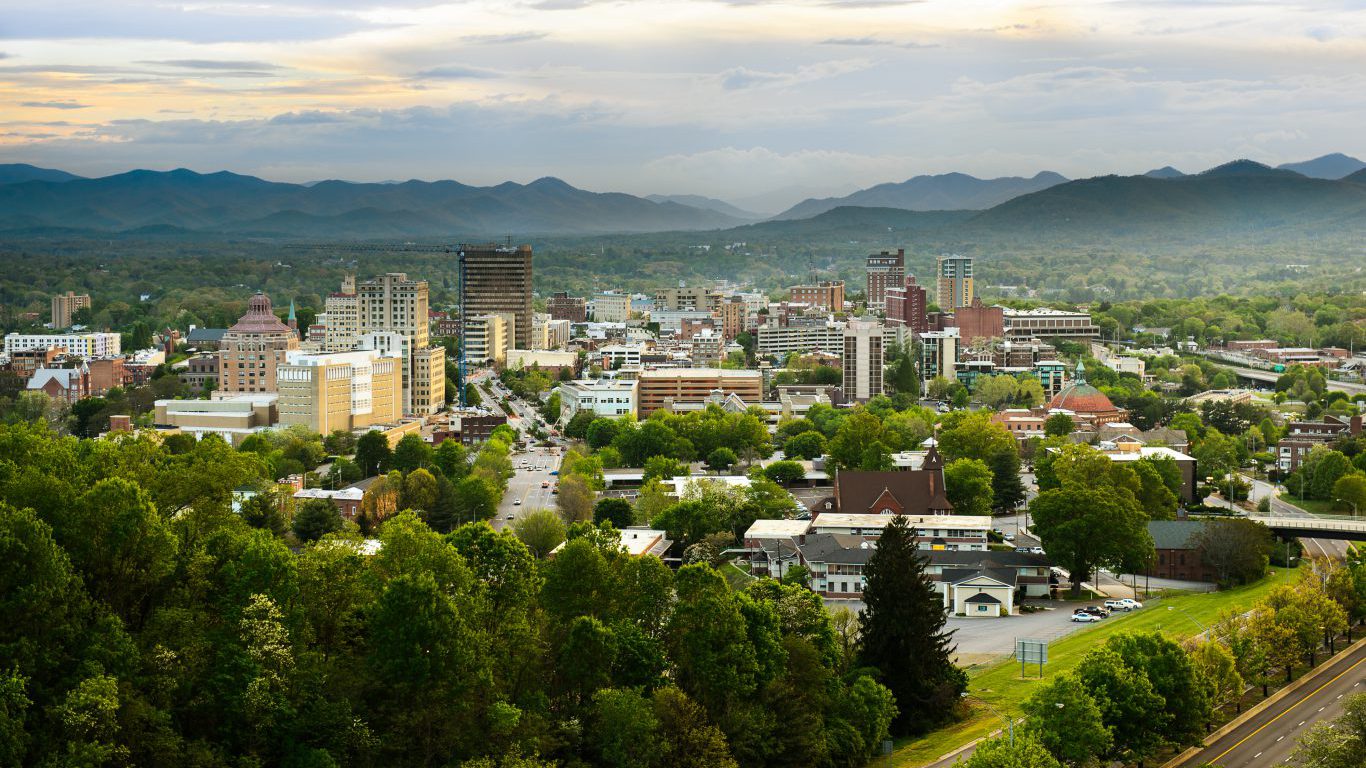
13. Asheville, NC
> Pct. adults who are proud of their community: 74.2%
> Adults who feel safe and secure: 82.6%
> Population: 452,319
> Median household income: $50,541
Asheville, situated in the Appalachian Mountains, has more than 30 art galleries in its downtown. Lower than average poverty levels are common across the nation’s proudest communities. Greater financial stability among area residents could help explain the 82.6% share of adults in Asheville who report always feeling safe and secure, versus the national average share of 76.7%.
Unsurprisingly, proud communities tend to be decent places to live. In Asheville, more than 75% of adults said where they live is the perfect place for them, well above the national average percentage of 63%.
[in-text-ad]
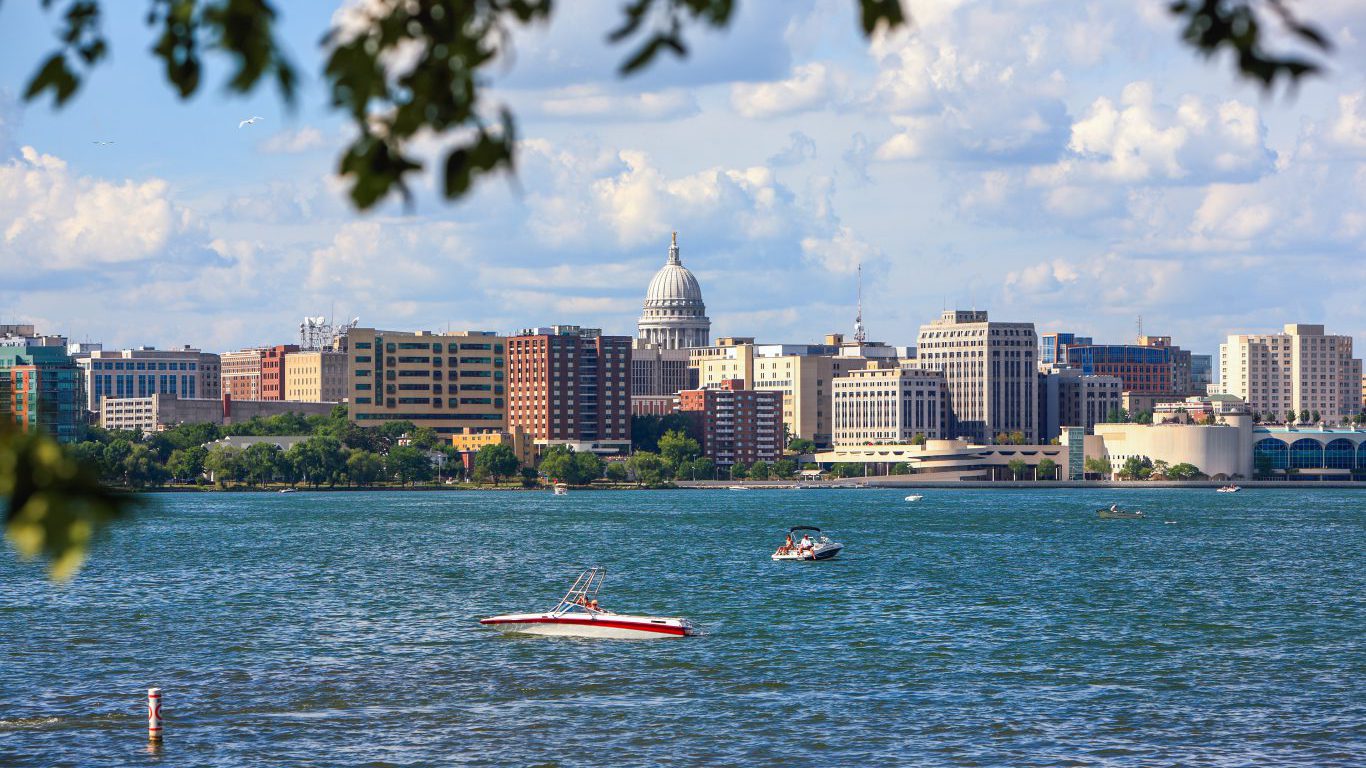
12. Madison, WI
> Pct. adults who are proud of their community: 74.9%
> Adults who feel safe and secure: 87.4%
> Population: 648,929
> Median household income: $68,497
What makes Madison residents so proud to live there? Well, in addition to picturesque scenery, this college town’s economy provides well for its residents — the median household income is nearly $11,000 higher than the national income. Further, it is relatively safe. Over 87.0% of adults say they feel safe and secure in Madison. As a result, residents are not only proud of their city but 70.4% of adults agree that Madison is the perfect place for them to live, well above the share of all communities considered of 63.4%. A point of pride for Madison residents could be the University of Wisconsin, a top-tier school founded in their city the same year Wisconsin became a state in 1848.In addition, 87.1% of adults in the community said they experienced enjoyment, which speaks volumes about the quality of the city.
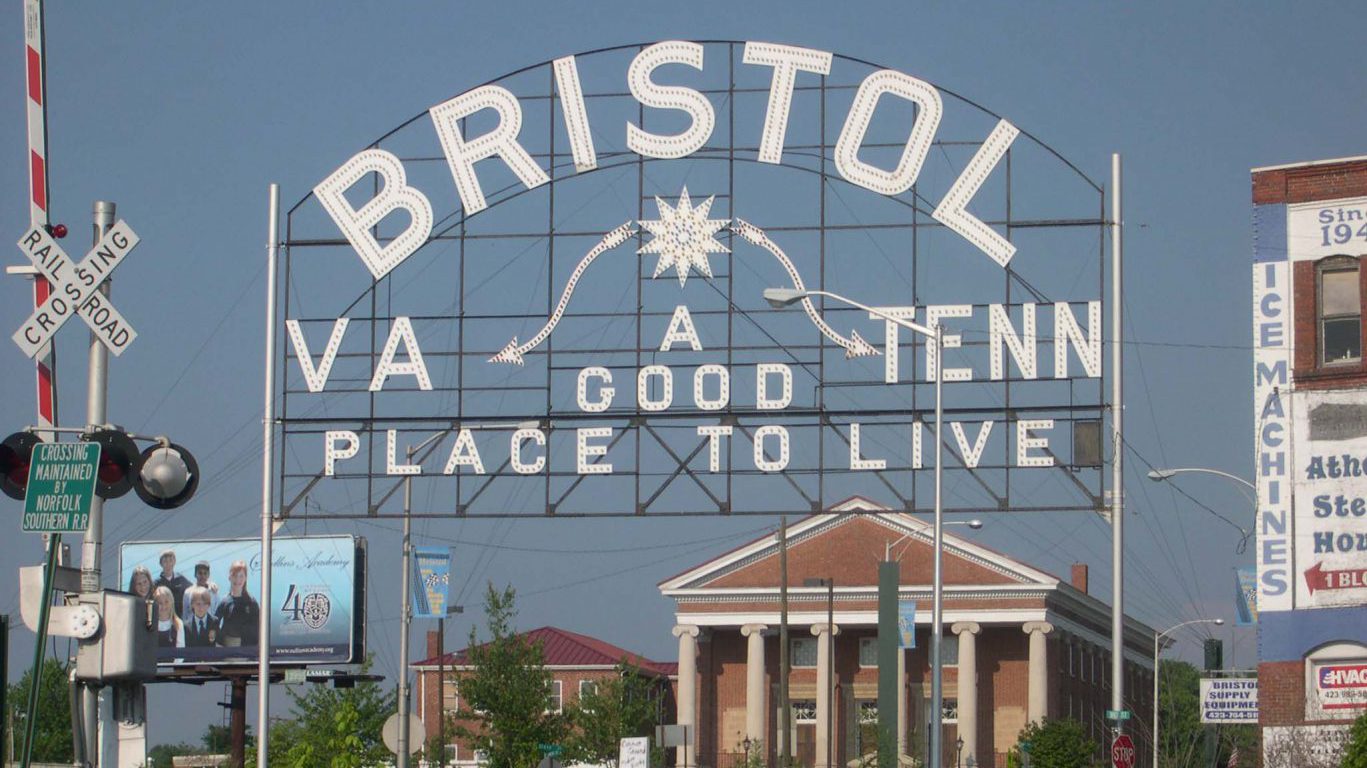
11. Kingsport-Bristol-Bristol, TN-VA
> Pct. adults who are proud of their community: 75.0%
> Adults who feel safe and secure: 81.1%
> Population: 307,723
> Median household income: $40,811
Although struggling with an above-average poverty level and relatively low incomes, the people of Kingsport-Bristol-Bristol are very proud of their community. Adults in this area, located between the state lines of Tennessee and Virginia, report better supervisor-worker relations than adults in the average American city. This could be why nearly 63% of the area’s residents told respondents that they can’t imagine living anywhere else in the world — above the national share of 51.6%.
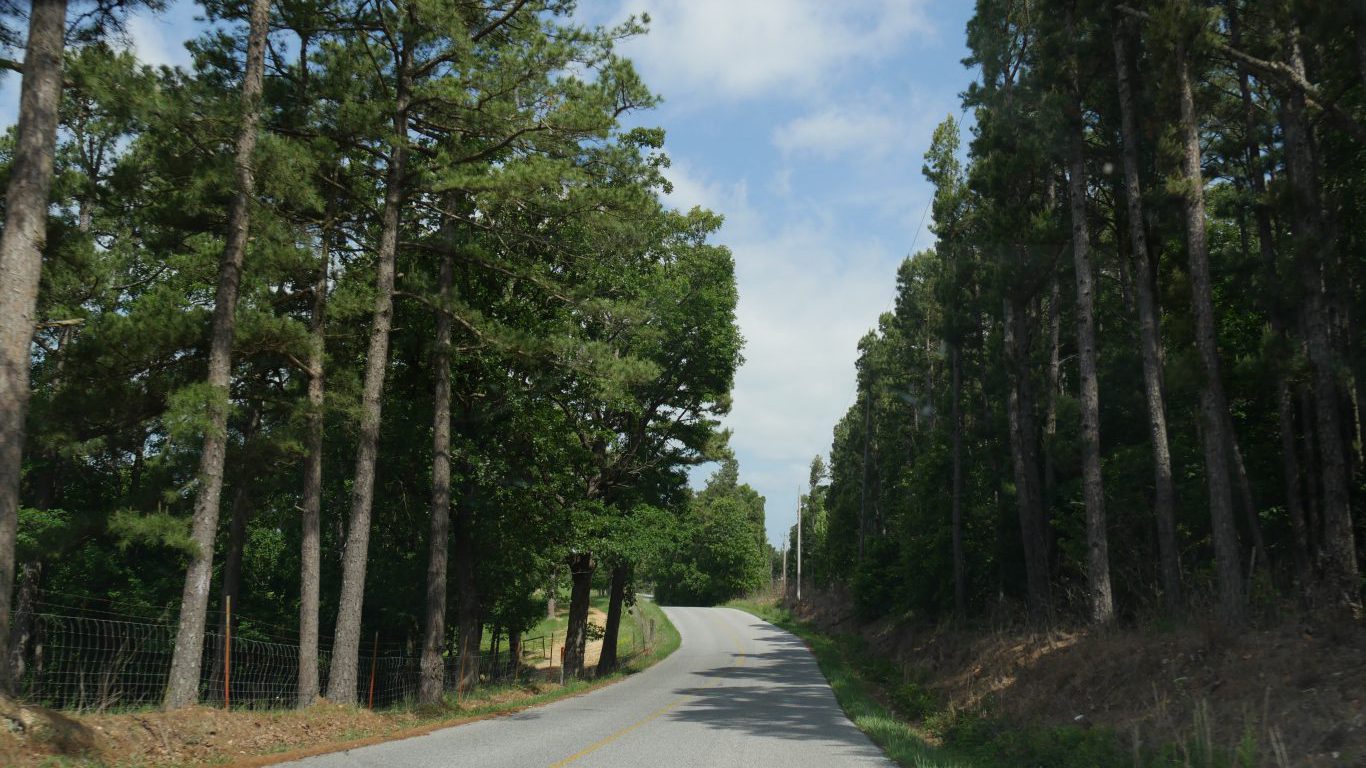
10. Fayetteville-Springdale-Rogers, AR-MO
> Pct. adults who are proud of their community: 75.2%
> Adults who feel safe and secure: 87.9%
> Population: 527,153
> Median household income: $51,848
More than 75% of adults in the Fayetteville-Springdale-Rogers metropolitan area ensconced in the Ozarks say they are proud of their community, and nearly 88% say they feel safe and secure. Relatively high incomes usually accompany such positive emotions, but not in the Fayetteville area. The area’s median household income is below the national median of $57,617. Nonetheless, nearly 91% of adults in the community say they experience happiness. As is the case in many of the cities on this list, the Fayetteville area is home to a major university. The University of Arkansas is one of the region’s largest research institutions and enrolls nearly 30,000 students.
[in-text-ad-2]
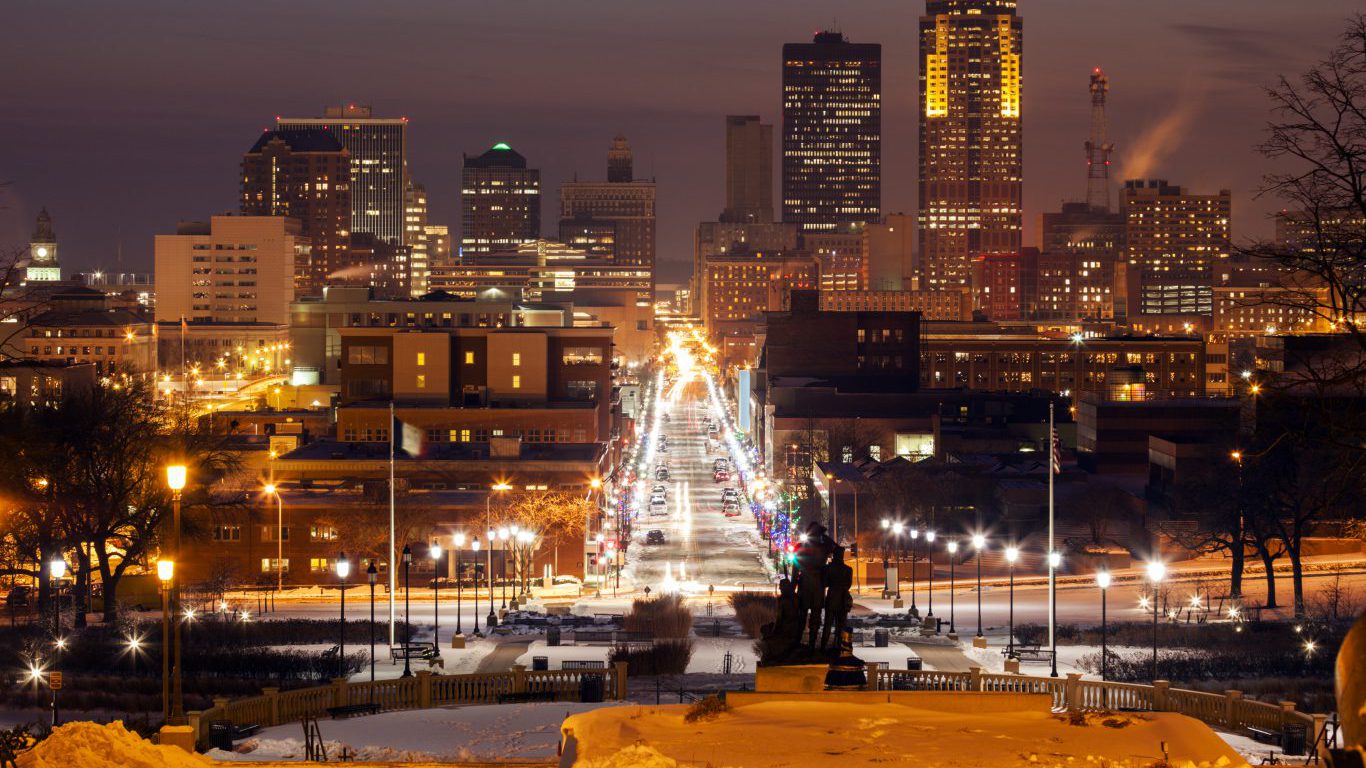
9. Des Moines-West Des Moines, IA
> Pct. adults who are proud of their community: 75.3%
> Adults who feel safe and secure: 86.7%
> Population: 634,725
> Median household income: $65,704
Being part of an environment where you can feel safe and protected contributes to a sense of community pride. In the metro area of Des Moines-West Des Moines, 86.7% of residents report feeling safe in their neighborhood — significantly more than the national share. In addition, over 81% of people from Des Moines-West Des Moines are satisfied with their standard of living. The capital region of Iowa also has a relatively high median household income of $65,704, over the national median of $57,617.
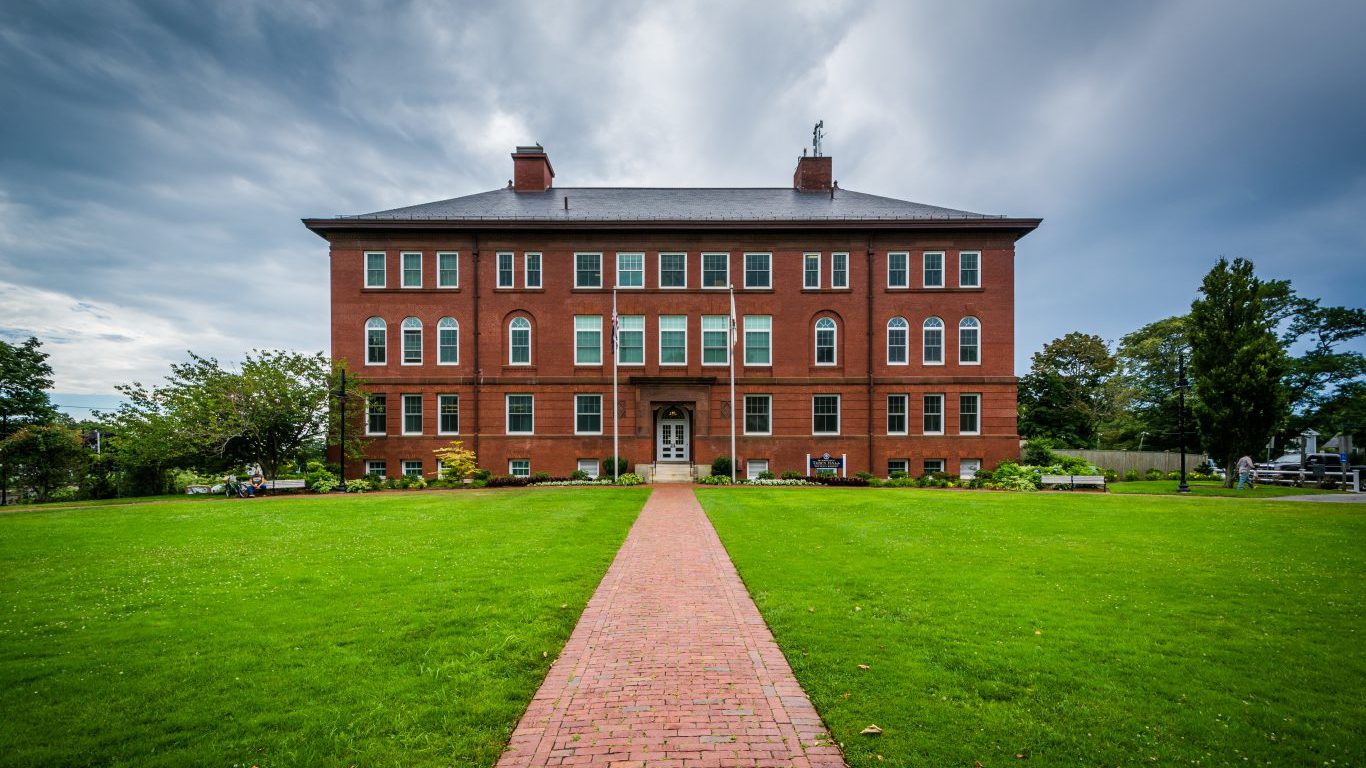
8. Barnstable Town, MA
> Pct. adults who are proud of their community: 75.3%
> Adults who feel safe and secure: 85.1%
> Population: 214,276
> Median household income: $67,898
The median household income in Barnstable, the largest community in Cape Cod, is just over $10,000 more than the national median of $57,617. The poverty rate in this city of over 45,000 people is only 6.5%, more than half the national rate of 14.0%. Perhaps economic prosperity is key to the community’s feeling very proud about its city. About 45.0% of adults report they are thriving physically, which crushes the national average of 32.7%. Also, a great deal of the community — 60.2% — say they have reached most of their goals in the last 12 months, above the national average.
[in-text-ad]
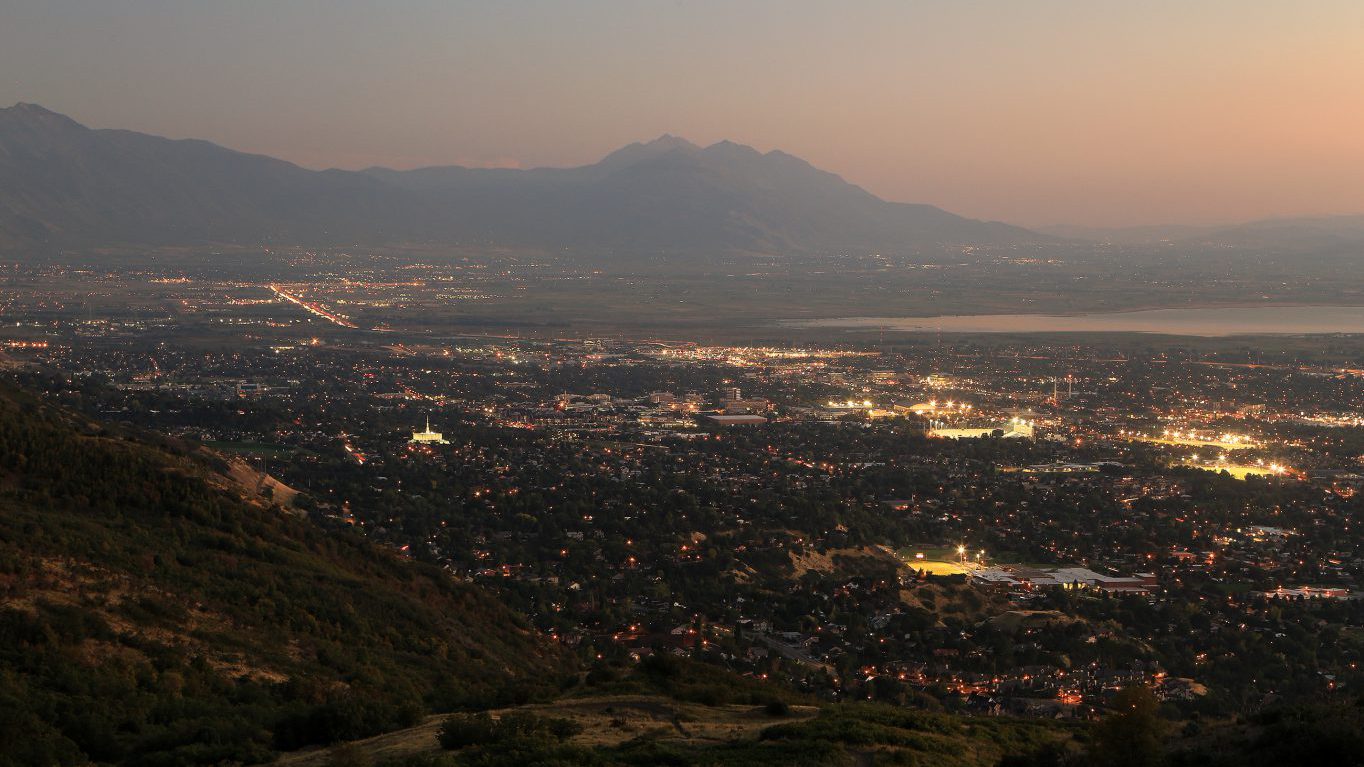
7. Provo-Orem, UT
> Pct. adults who are proud of their community: 75.9%
> Adults who feel safe and secure: 87.3%
> Population: 602,543
> Median household income: $69,288
Lying in the Utah Valley and surrounded by the Utah Lake and several mountain ranges, this metropolitan area ranks high in several key categories. More than 87% of area adults feel safe and over 91% report experiencing happiness, some of the highest shares of U.S. cities. When it comes to health, residents also seem to be doing considerably better than the typical American. Just 22% of adults are obese, significantly lower than the nationwide adult obesity rate of 28%. Compared to the national average, respondents from Provo-Orem ranked highly in education with over 94% of its residents holding a high school diploma. Who wouldn’t be proud of that?

6. Boulder, CO
> Pct. adults who are proud of their community: 77.1%
> Adults who feel safe and secure: 89.5%
> Population: 322,226
> Median household income: $74,615
Nearly 90.0% of people in Boulder say they feel safe and secure, which is well above the national share of 76.7% and the most of any metro area on this list. Boulder is only an hour away from Rocky Mountain National Park. Only 13.1% of adults are obese, the least obese metro area in the U.S., compared with the national adult obesity rate of 28.2%. The median household income in Boulder of $74,615 a year is also well above the national median of $57,617. The higher incomes may contribute to residents’ pride in their community.
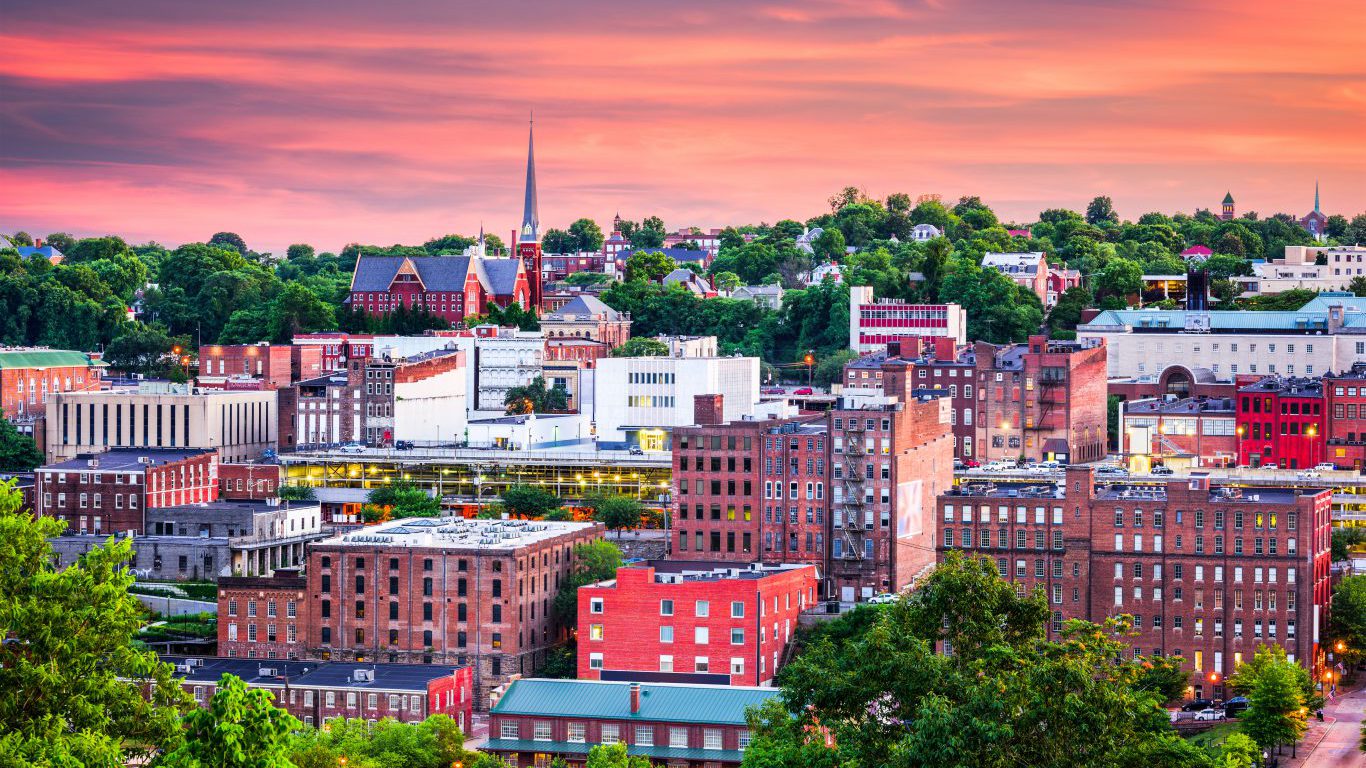
5. Lynchburg, VA
> Pct. adults who are proud of their community: 77.4%
> Adults who feel safe and secure: 84.6%
> Population: 261,167
> Median household income: $48,530
This central Virginia city located on the James River is the happiest place in America. A whopping 95% of respondents from Lynchburg report having experienced happiness, the highest share of any U.S. city. Further, more than 75% of area adults said where they live is the perfect place for them, well above the national average percentage of 63%. What makes these statistics stand out is that 85% of Lynchburg residents report they are satisfied with their standard of living, even though their poverty level matches the national average of 14%. For the people of Lynchburg, it seems income matters less — not only for personal happiness but also for community pride.
[in-text-ad-2]
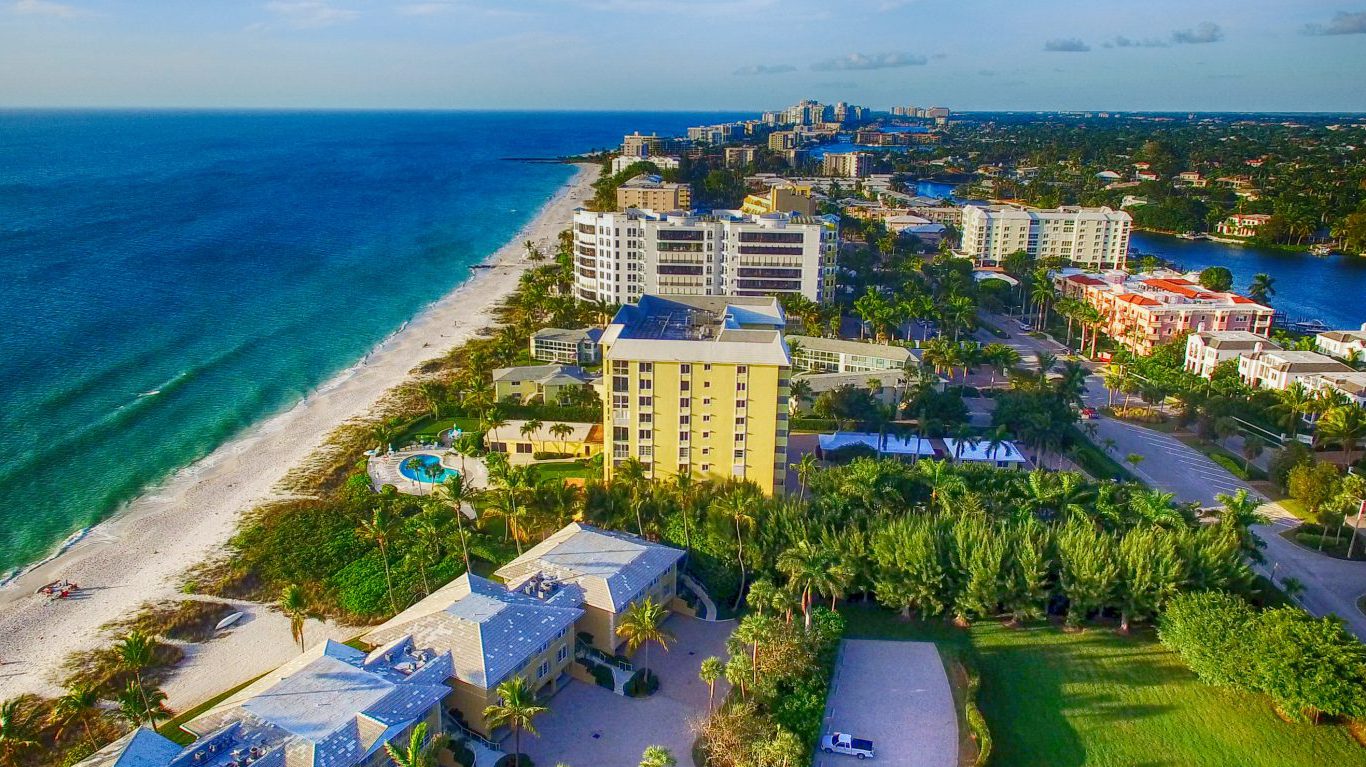
4. Naples-Immokalee-Marco Island, FL
> Pct. adults who are proud of their community: 78.3%
> Adults who feel safe and secure: 86.0%
> Population: 365,136
> Median household income: $48,530
The median household income on Florida’s sunshine-filled Gulf Coast is almost $4,000 above the national average and the property crime rate is incredibly low. Only 220.9 incidents per every 100,000 people occur, which is much less than the national rate of 949.8 per every 100,000. With such low property crime rate, people may feel like they can trust the members in their community, which is certainly something to feel proud about. People in Naples-Immokalee-Marco Island also seem to be in relatively good health with 43.6% of adults reporting they are physically thriving. Only 19.3% of adults are obese in this metro area, well below the national obesity rate of 28.2%.
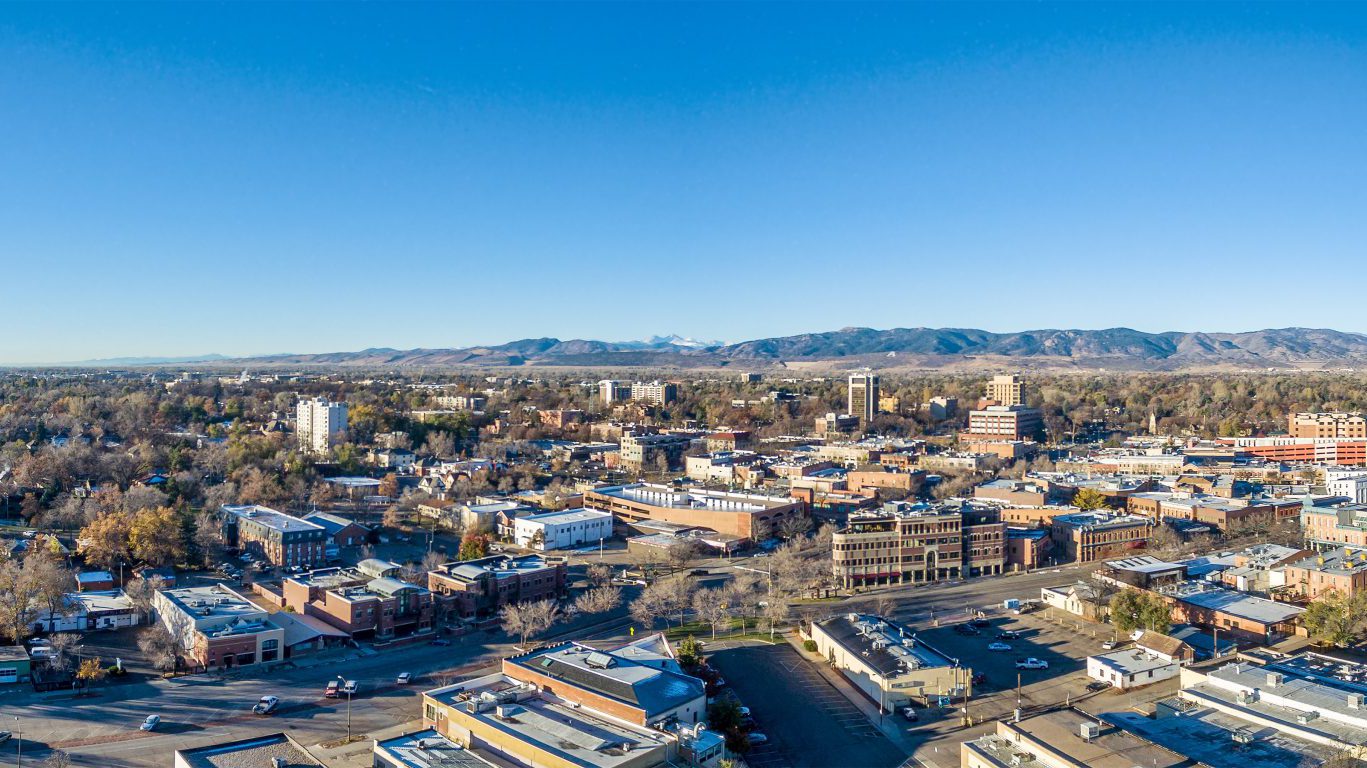
3. Fort Collins, CO
> Pct. adults who are proud of their community: 78.7%
> Adults who feel safe and secure: 87.7%
> Population: 339,993
> Median household income: $66,469
Perhaps people from Fort Collins, Colorado are as proud as they are because of their community’s stellar college attainment rate. Fort Collins is home to Colorado State University, a school with 16 Division 1 NCAA sports teams. Nearly 47% of city adults have at least a bachelor’s degree, the ninth-highest rate of any U.S. city and far greater than the 31% national rate. And when it comes to high school, over 96% of people hold a diploma, the highest percentage of high school graduates in the United States.
The craft beer capital of Colorado also reports the third lowest adult obesity rate in the United States at 17.6%, more than 10 percentage points under the national rate.
[in-text-ad]
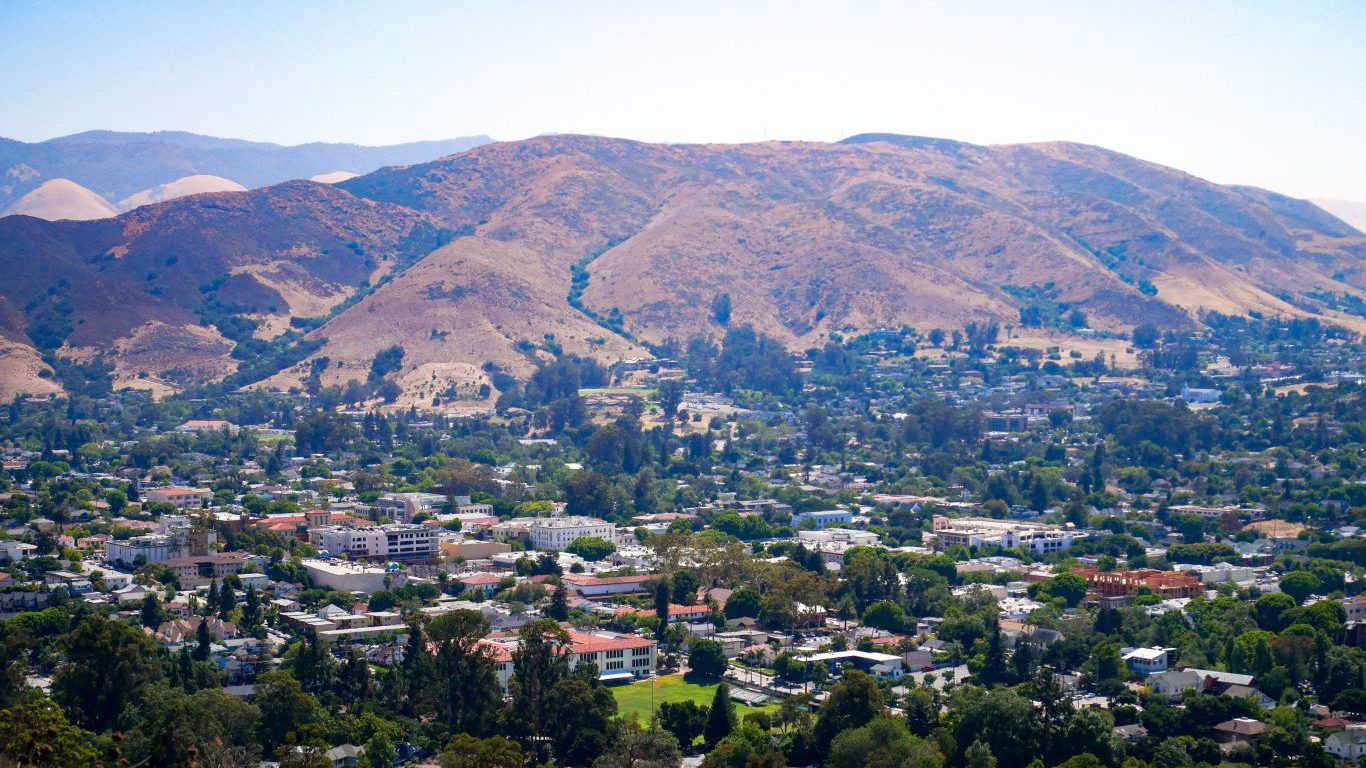
2. San Luis Obispo-Paso Robles-Arroyo Grande, CA
> Pct. adults who are proud of their community: 78.9%
> Adults who feel safe and secure: 87.9%
> Population: 282,887
> Median household income: $70,564
Nearly 79.0% of adults in the San Luis Obispo metro area say they are proud to live in their community, and 85.4% say they are satisfied with their standard of living, the second highest among the 13 on the list. Perhaps high incomes help support such positive opinions. The area’s median household income of $70,564 a year is well above the national figure of $57,617.
Just over 78.0% of adults agree that the metro area is the perfect place for them to live, and 43.3% say they are physically thriving, higher than the national average of 32.7%.
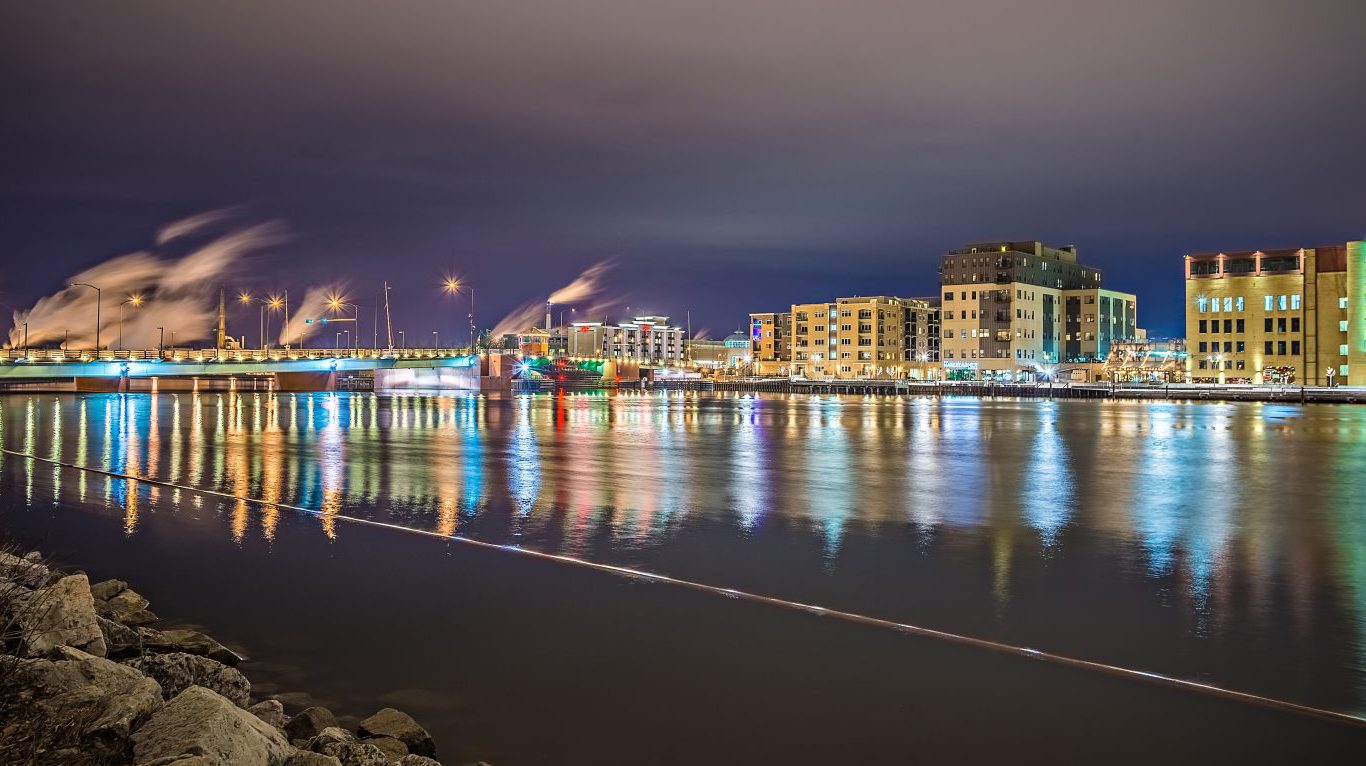
1. Green Bay, WI
> Pct. adults who are proud of their community: 79.4%
> Adults who feel safe and secure: 87.8%
> Population: 318,236
> Median household income: $58,011
When you are the smallest city in the United States to host an NFL team that has been making national headlines since its inception, being proud becomes second nature. In fact, the Green Bay Packers are the only American football team owned entirely by its fans. In addition, Green Bay has one of the lowest poverty levels in the country — about 5 percentage points below the U.S. poverty rate. Also, over 93% of residents say they experience happiness on a regular basis compared with the American share of 88%. But which town wouldn’t be happy and proud to be part of one of the most successful teams in American football history.
The thought of burdening your family with a financial disaster is most Americans’ nightmare. However, recent studies show that over 100 million Americans still don’t have proper life insurance in the event they pass away.
Life insurance can bring peace of mind – ensuring your loved ones are safeguarded against unforeseen expenses and debts. With premiums often lower than expected and a variety of plans tailored to different life stages and health conditions, securing a policy is more accessible than ever.
A quick, no-obligation quote can provide valuable insight into what’s available and what might best suit your family’s needs. Life insurance is a simple step you can take today to help secure peace of mind for your loved ones tomorrow.
Click here to learn how to get a quote in just a few minutes.
Thank you for reading! Have some feedback for us?
Contact the 24/7 Wall St. editorial team.